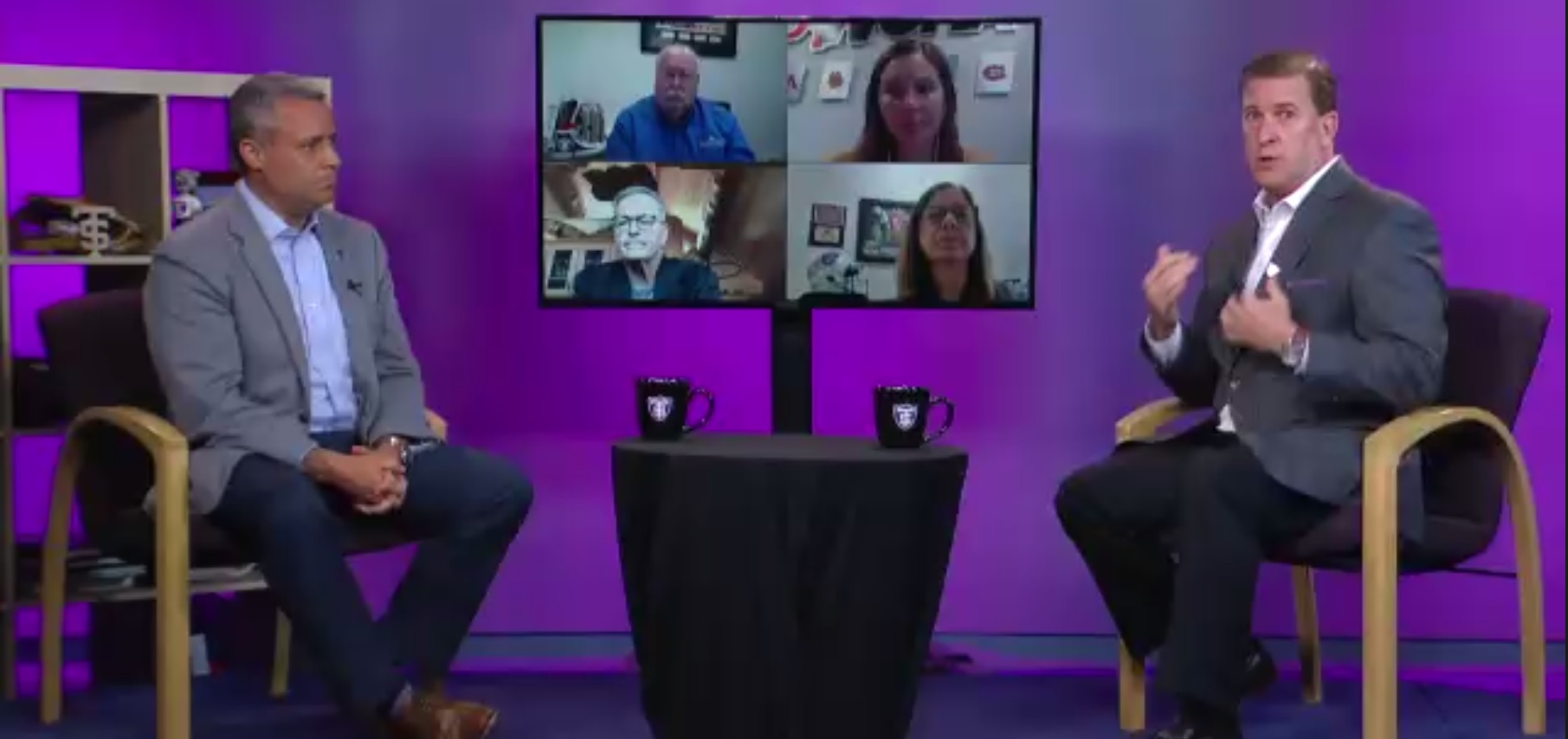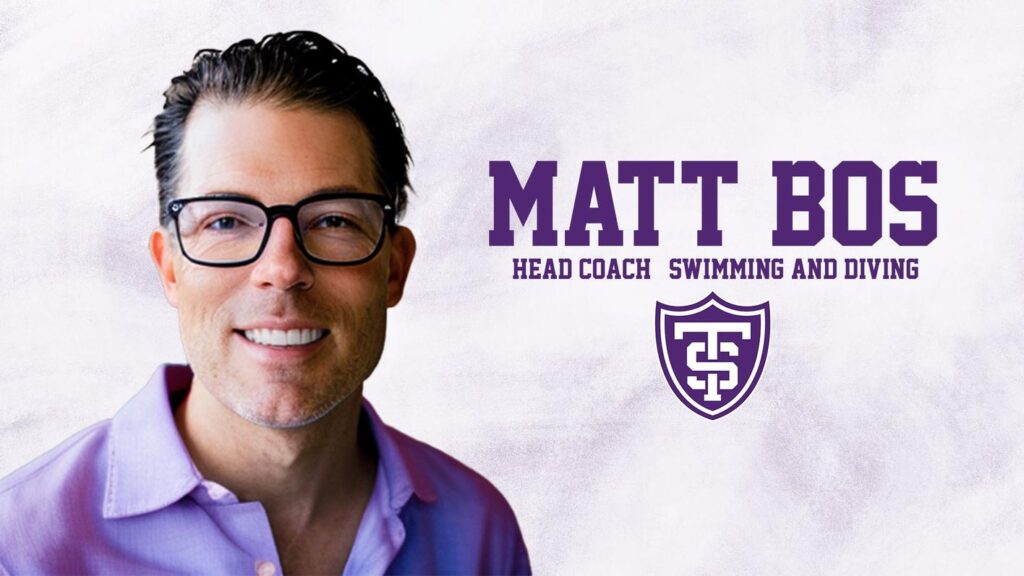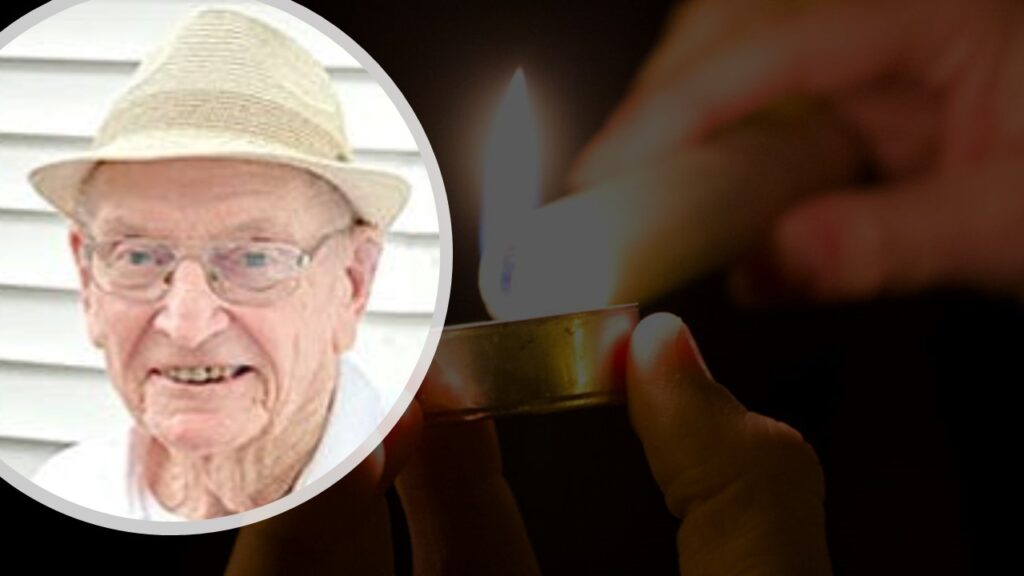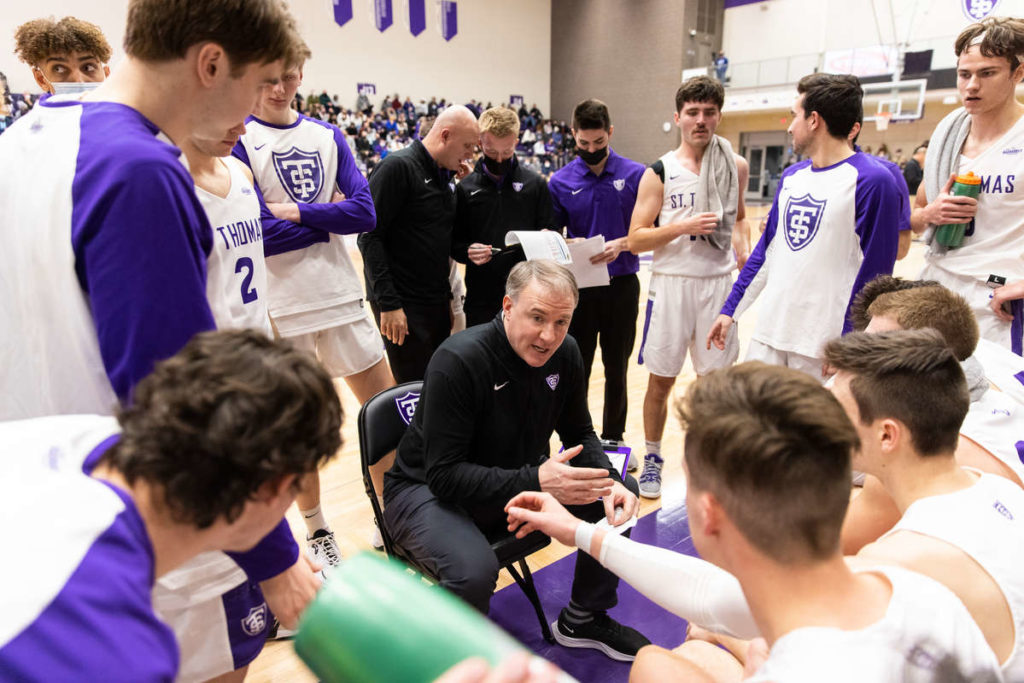St. Thomas officially transitions to Division I athletics on July 1. To mark this pivotal point in the university’s history, the 2020-21 First Friday Speaker Series concluded with a conversation featuring the commissioners of St. Thomas’ new athletic conferences.
During the May 7 talk, Vice President and Director of Athletics Phil Esten was joined by Commissioner Tom Douple from the Summit League, Jennifer Flowers from the Western Conference Hockey Association, Commissioner Don Lucia from the Central Collegiate Hockey Association and Patty Viverito from the Pioneer Football League. The conversation was moderated by a Tommie: Bob McNaney, senior vice president at global communications company Padilla.
To support student-athletes and to achieve competitiveness at the Division I level, St. Thomas is taking steps to build the infrastructure deemed necessary to support this transition in the next few years.
Here are five observations from the May 7 conversation.
1. Moving to Division I provides an opportunity for St. Thomas to raise its national profile.
St. Thomas will be the first private Division I institution in Minnesota, leaving its unparalleled footprint and truly reflecting the university's ambitiousness. (The University of Minnesota currently is the only full Division I school in the state.)
Don Lucia, commissioner of the Central Collegiate Hockey Association (CCHA), said the transition could not have come at a better time.
“Back in the ’70s there was talk of St. Thomas having Division I hockey, so it's always been out there. The success [of] more players playing Division I hockey from the state of Minnesota than any place else in the country, the success of our other five teams in college hockey this past year – all five teams participating in the NCAA tournament, three in the Frozen Four – there is much to be excited about,” he said.
St. Thomas will be the only private school in the CCHA.
“They're going to have a tremendous stage to build their program,” Lucia continued.
St. Thomas’ commitment to excellence, Lucia said, will translate to hockey and other athletics.
2. The institutional reputation could elevate the conferences as well.
At the time that St. Thomas was looking to move to Division I, Western Conference Hockey Association (WCHA) Commissioner Jennifer Flowers said the conference was looking for an eighth member to join the WCHA.
“We were very specific in what we were looking for. St. Thomas becomes our second institution in the Twin Cities, which is our largest media market. They’re also our first private school. They completely fit right within our footprint,” she said.
The WCHA will elevate Tommie women's hockey, and the institutional profile of St. Thomas will elevate the WCHA brand as well, Flowers added.
Tom Douple, Summit League commissioner, echoed Flowers in saying that St. Thomas’ geographical location is a perfect market. Douple noted that the Twin Cities is home to 40,000 Summit League alumni and that seven of the Summit League’s schools are within driving distance of St. Thomas.
“There’s that one word of leadership," he said. "There is leadership from the Board of Trustees, a true leader in Pat Ryan, a great president in Julie Sullivan, and an outstanding athletic director in Phil Esten. The pieces of the puzzle were all there.”
With a smile and a laugh, Douple commented, “Their address is 2115 Summit Ave. That just goes to show you it was meant to be.”
3. Practicing comprehensive excellence is crucial for Division I athletes now and after graduation.
Growing up the son of a college cross-country and track coach, and as a past St. Thomas athlete himself, Vice President and Director of Athletics Phil Esten ’95 knows how balance is a key player when it comes to a student's success.

VP and Director of Athletics Phil Esten has more than 20 years of experience at the Division I level. (Mark Brown/University of St. Thomas)
“It is important to me that we give our student-athletes the opportunities to be successful in all realms of the experience,” he said.
Esten explained the value of comprehensive excellence, how pursuing success educationally and that engaging in the community builds character and in competition. This holistic approach that balances knowledge and athletics in a student’s educational experience helps build them to be an even greater person.
“We think [it] helps to build ultimately better wives, husbands, mothers, fathers, business leaders and community leaders, and more well-rounded people overall,” he remarked.
Flowers explained the WCHA discusses how to help students be the best on and off the ice regularly.
“Off the ice is their ability [and] duty to grow the game, to help be a role model for the young girls who are playing, to stay a few minutes where they can sign a few autographs and really make that young girl who’s watching excited,” she explained.
She expressed the importance of students remembering where they came from.
“You were that girl at one point. You grew up wanting to be that person on the ice and now you're here, so your responsibility is to support that next generation,” she said.
Senior Associate Commissioner and Missouri Valley Conference Commissioner of the Pioneer Football League Patty Viverito said through this transitional process, she realized early on St. Thomas brings the mindset of balance.
“It is about winning, but it's not all about winning. It's about creating great opportunities and experiences for our student-athletes and I sensed that from the very first day,” she added.
4. The provisional period will hold St. Thomas for a little while, but not for long.
The NCAA’s five-year provisional period gives universities the opportunity to yield the institutional and business support necessary for a school’s later success.
“Throughout the course of those five years, we don't qualify for the NCAA championships. We do, however, have opportunities to play in conference championships,” Esten explained.
In the Summit League, the ability to compete in these tournaments varies by sport. Some teams will still have the opportunity to play in the league championships. Both men and women’s hockey can take advantage of conference championships in these five years, but football, for example, does not have a league championship.
Esten said that the commissioners have been very supportive through this process, acknowledging that the competition aspect is critical for the student-athletes.
5. There are many ways for members of the St. Thomas community to support the transition to D-I.
After being asked, “What can I do to help?” various times throughout this transition, Esten shared a few words as to how the Tommie community can rally in support.
“Be an ambassador for Tommie athletics in your families, places of work and communities. We need advocates who can help tell our unique story and grow the already strong Tommie network. Wear your purple with pride, show up and bring friends to alumni and community functions and simply help us extend the great story that is unfolding here in St. Paul,” Esten said.
Secondly, investing in Tommie athletics by buying merchandise, wearing purple wherever one can and purchasing season tickets are other opportunities.
Esten concluded, “Consider joining the 1904 Club, as your philanthropic support provides needed resources to make this a positive and meaningful experience for all of our student-athletes.”
With various ways to provide support St. Thomas through this process, it is important that the St. Thomas community continues to build champions for the university as this transition unfolds.






